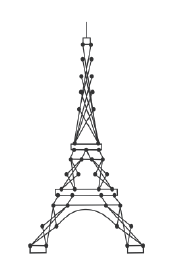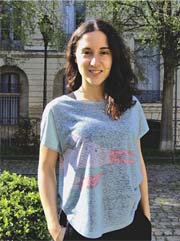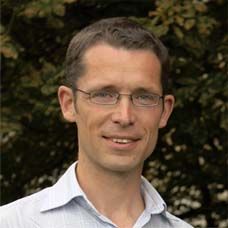|
|
|
Keynote speakers
Sonia Kéfi Sonia Kéfi is an ecologist at the CNRS at the Institut des Sciences de l'Evolution de Montpellier (ISEM), France. She investigates, both empirically and theoretically, how species interactions affect ecosystem functioning. She is especially interested in multi-layer ecological networks. How do the type and structure of different types of ecological interactions contribute to the stability and resilience of ecological systems? She received the van Marum prize for environmental sciences in 2011 and the Bronze medal of the CNRS in 2017.
Michael Pocock Dr Michael Pocock is an ecologist at the Centre for Ecology & Hydrology in Oxfordshire, UK. He has worked on species interactions in different terrestrial systems under a range of environmental pressures, such as agriculture and habitat fragmentation. More recently, he is combining his interests in citizen science with ecological networks to consider how recording interactions can add value to species monitoring, and how species interactions can be inferred from existing data – thus allowing us to use networks approaches at times and in places where the interactions have not been directly recorded.
Diane Srivastava Dr. Diane Srivastava is a Professor of Zoology at the University of British Columbia, Director of the Canadian Institute of Ecology and Evolution, and a Peter Wall Scholar. She is the recipient of a NSERC E.W.R. Steacie Memorial Fellowship (2010), an annual prize to Canada’s top six mid-career scientists. Dr. Srivastava co-ordinates the Bromeliad Working Group, an international research network with >50 members that conducts globally distributed experiments and data syntheses on a model system in ecology: the aquatic invertebrate food webs within bromeliads. This system has allowed Dr. Srivastava to study questions at the intersection of community ecology, ecosystem ecology and biogeography, including: trophic metacommunity ecology; geographic contingency in food web structure; multi-trophic effects on ecosystem functioning; food web responses to climate change; trait-based approaches to food webs; ecological stoichiometry of food webs; and fragmentation impacts on food web functions.
Diego Vázquez I am a biologist broadly interested in ecology, with an emphasis on community ecology, plant-animal interactions, especially pollination and other plant-animal mutualisms, ecological networks, and invasions biology. I am a CONICET Principal Researcher at the Argentine Institute for Dryland Research (IADIZA), in Mendoza, Argentina. I am also an Associate Professor at the Faculty of Exact and Natural Sciences of the National University of Cuyo, where I teach Ecology, Conservation biology, and graduate-level courses. The main interst of our lab is the ecology of interspecific interactions. We seek to understand the ecological causes and consequences of biotic interactions and how they respond to human-caused environmental changes. Our research is motivated by questions that lead us to combine a variety of approaches, including field observational studies, manipulative experiments, computer simulations, meta-analyses of data from the literature, mathematical models, and conceptual work with pen and paper. We work mainly with plants and insects (bees and other pollinators, ants), but we are open to studying other kinds of organisms if the question requires it. Our current interests include the structure and dynamics of ecological networks, the functioning and conservation of plant-animal mutualisms, the ecology of biological invasions, and more! |





